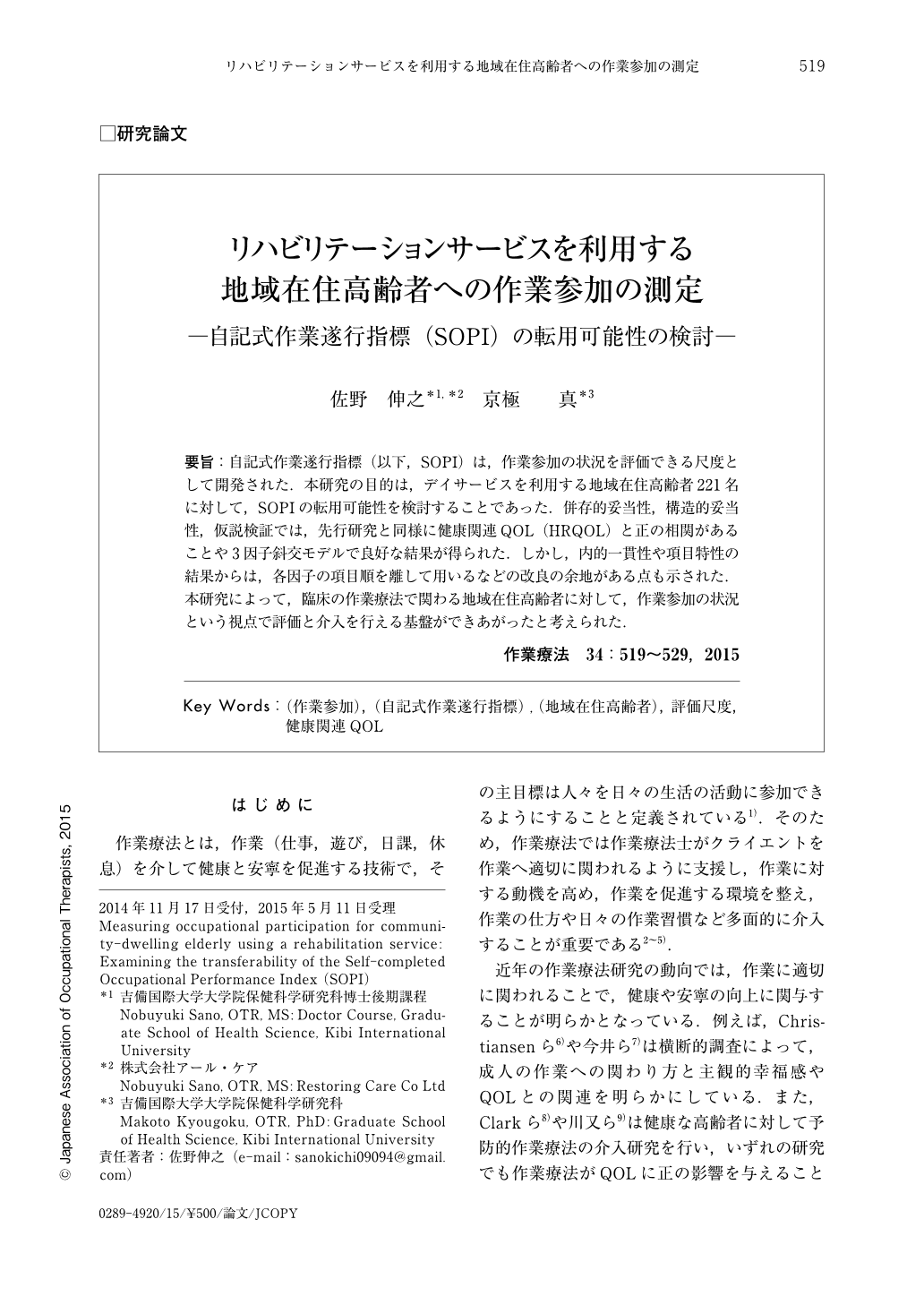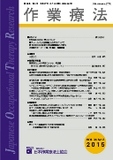Japanese
English
- 販売していません
- Abstract 文献概要
- 1ページ目 Look Inside
- 参考文献 Reference
- サイト内被引用 Cited by
要旨:自記式作業遂行指標(以下,SOPI)は,作業参加の状況を評価できる尺度として開発された.本研究の目的は,デイサービスを利用する地域在住高齢者221名に対して,SOPIの転用可能性を検討することであった.併存的妥当性,構造的妥当性,仮説検証では,先行研究と同様に健康関連QOL(HRQOL)と正の相関があることや3因子斜交モデルで良好な結果が得られた.しかし,内的一貫性や項目特性の結果からは,各因子の項目順を離して用いるなどの改良の余地がある点も示された.本研究によって,臨床の作業療法で関わる地域在住高齢者に対して,作業参加の状況という視点で評価と介入を行える基盤ができあがったと考えられた.
Introduction: The Self-completed Occupational Performance Index (SOPI) was developed to assess the quality of clients' participation in occupational therapy. SOPI has been studied in relation to preventive occupational therapy, but not as it applies to the community-dwelling elderly using rehabilitation services. Aim: This study examined transferability of the SOPI among community-dwelling elderly using rehabilitation services. Methods: 217 people (mean;76.2±9.0) participated in the study, and evaluated the SOPI questionnaire, SF-8 and face sheets. We analyzed the psychometric properties of SOPI according to concurrent validity, structural validity, hypothesis inspection, internal consistency and item properties. Results: From the results of concurrent validity, structural validity and hypothesis inspection, SOPI correlated positively with SF-8 and the oblique model of the three factors. These results were consistent with preceding studies. However, the reversibility of SOPI may need to be explored, as changes in the item order of SOPI results from internal consistency and IRT. Conclusion: This study offers evidence that occupational therapists can assess and intervene toward the quality of the occupational participation in community-dwelling elderly.

Copyright © 2015, Japanese Association of Occupational Therapists. All rights reserved.


